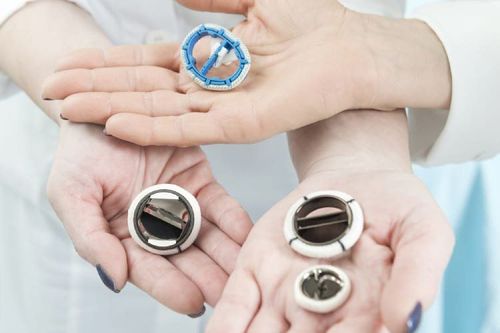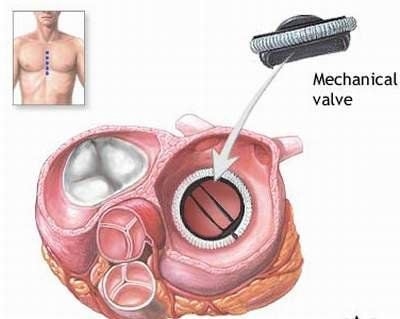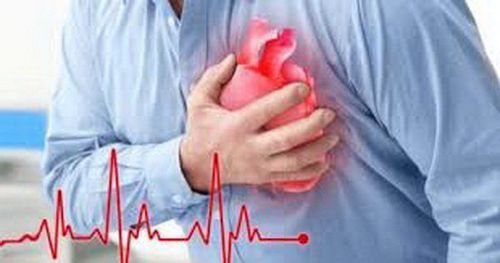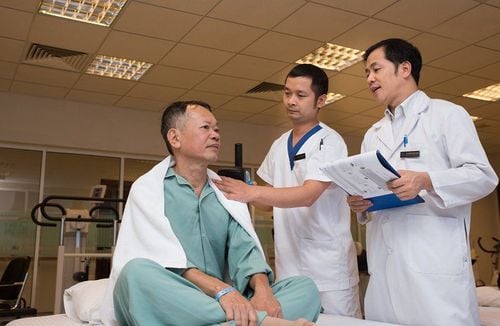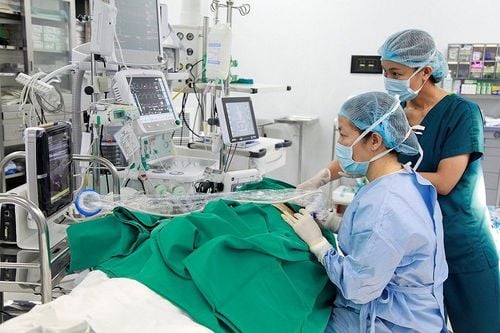This is an automatically translated article.
The article was professionally consulted by Master, Doctor Do Nguyen Thuy Doan Trang - Head of Extracorporeal Circulation Team - Cardiovascular Center - Vinmec Central Park International General HospitalHeart valve repair and replacement surgery is a highly accurate surgery and the majority of patients have a marked improvement after surgery. However, there is still a small chance of complications such as valve dysfunction after surgery, myocardial infarction, pulmonary embolism or stroke.
1. Heart valve disease
Heart valves control the flow of blood through the heart by opening and closing each time the heart contracts, allowing blood to flow in a certain direction.
Heart valve diseases can occur from birth (congenital) or acquired (rheumatic heart disease, infective endocarditis, valvular degeneration in the elderly, valvular heart disease due to coronary artery injury. acute or chronic...). Common heart valve diseases:
Heart valve stenosis: When the valve leaves become thick and stiff, the valve's ability to open is limited, obstructing blood flow.
● Heart valve regurgitation: When the valve leaflets do not close tightly due to annular dilatation, degeneration, adhesion, contraction or too long the ligaments of the valve... Then the blood flow not only flows in one direction but overflows. reverse during valve closing.
Due to valve damage, the heart has to work harder to compensate for the volume overload that causes the heart wall to thicken. If this condition is prolonged and untreated, it will cause the chambers of the heart to dilate, fibrous cells to grow, and the heart to gradually dilate. Permanent damage to the heart muscle reduces the ability of the heart muscle to contract, resulting in heart failure, which can lead to death.
Therefore, based on symptoms and cardiovascular condition, the doctor will appoint surgical intervention of the heart valve.
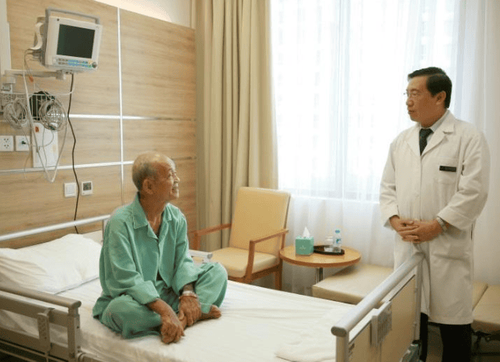
2. Possible risks of heart valve repair or replacement surgery:
Bleeding during and after surgery Embolism: myocardial infarction, stroke, pulmonary embolism... Infection Pneumonia Pancreatitis Respiratory disorders Cardiac arrhythmias Heart valve function is not working properly after surgery jutsu
3. Abnormal signs after heart valve surgery
As with other procedures and surgeries, complications after heart valve surgery can occur but in a small proportion. However, this can be minimized to the maximum if surgery is highly precise and postoperative care, good treatment, close monitoring of the condition during and after surgery.
Here are some important warning signs every sick person needs to know. All symptoms are possible such as heart attack, stroke or major bleeding that can be fatal. Therefore, if the patient himself or a loved one has signs of danger, it is best to call an ambulance to go to the hospital right away, and should not worry too much.
Chest discomfort: Most angina attacks often manifest as discomfort in the middle of the chest, heaviness, pressure, squeezing or pain lasting for several minutes, repeated and increase with continued exercise. This sensation can appear in the left or middle chest area, spread up 1 or 2 arms, behind the back, up the neck, jaw or down the abdomen.
Shortness of breath: May or may not be accompanied by chest discomfort. Sudden onset of severe dyspnea unrelated to exertion.
● Cold sweats, nausea, dizziness...
● Sudden onset of numbness and weakness in the face, arms or legs, especially one side of the body (right or left side).
● Sudden loss of consciousness or bewilderment, lethargy, not understanding or answering questions correctly.

● Sudden appearance of vision problems in one or both eyes.
● Sudden onset of dizziness, loss of balance or coordination of movements.
Sudden severe headache for no apparent reason.
Some other symptoms to watch out for are:
● Fever >38 degrees Celsius, or chills
● Skin redness, swelling, bleeding or discharge from the incision or any injection site
● Incision pain gain
● Unusually rapid weight gain, ankle swelling.
● Easy bruising
● Irregular bleeding: bleeding gums, bleeding under the skin....
Vomiting and nausea that persists
● Sudden heartbeat that doesn't keep up with the normal rhythm.
Heart valve surgery is one of the difficult surgeries, requiring high qualifications of doctors and techniques, modern machinery and techniques to ensure the surgery is carried out accurately and with low limitations. possible complications.
Cardiovascular Center - Vinmec Central Park International General Hospital is one of the leading centers of Vinmec Central Park International General Hospital, the heart center's experts include Professors, Doctor, Doctor of Specialization 2, Master of experience, has great reputation in the field of medical treatment, surgery, interventional cardiac catheterization and application of advanced techniques in diagnosis and treatment of diseases. cardiovascular theory.
In particular, the Center has modern equipment, on par with the most prestigious hospitals in the world, including echocardiography machine with GE esophageal ultrasound probe, Maquet extracorporeal circulation machine HL20, CATSmart- Fresenius Kabi return blood transfusion machine, VAVD Boehringer machine, Hybrid operating room equipped with state-of-the-art equipment such as DSA angiography machine, anesthesia machine integrated with patient hemodynamic monitoring software tightest (PiCCO system, entropy,...).
Please dial HOTLINE for more information or register for an appointment HERE. Download MyVinmec app to make appointments faster and to manage your bookings easily.





